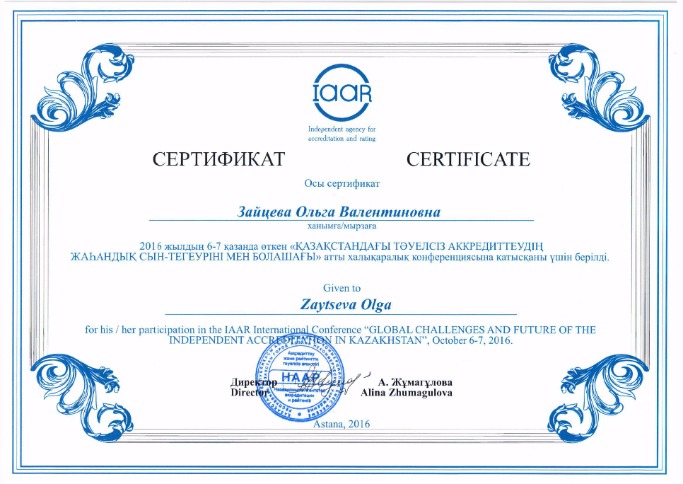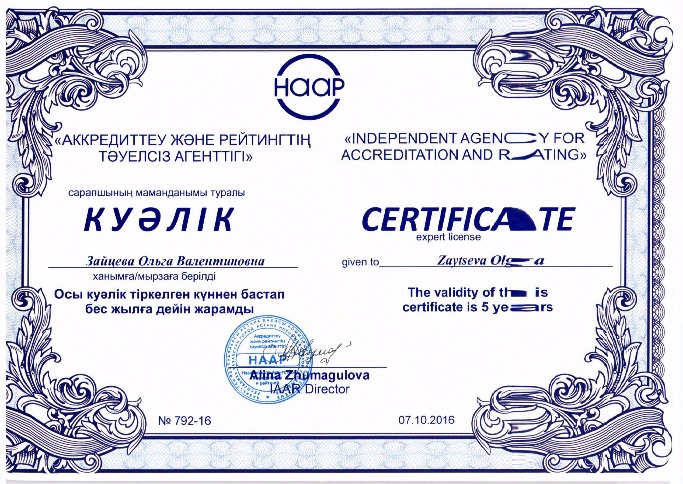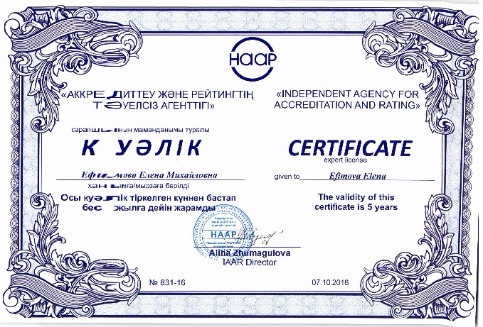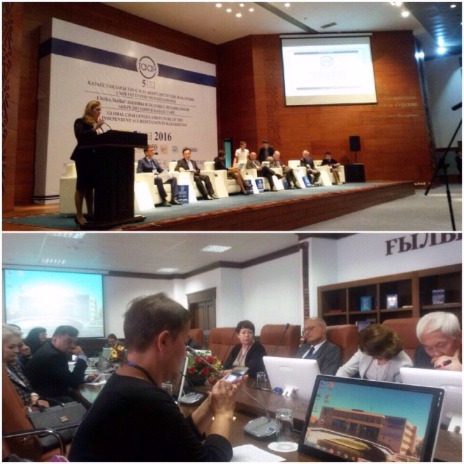- РУС
- ENG
6-7 October: participation in the International conference “Global challenges and the future of independent accreditation in Kazakhstan” dedicated to the 5th anniversary of the Independent Agency for Accreditation and Rating, IAAR (Astana, Republic of Kazakhstan).
On October 6-7, 2016 the Deputy Director of the National Accreditation Agency (NAA) Elena Efimova and the Analyst of the Expert Relations Department Olga Zaitseva were invited by the Independent Agency for Accreditation and Rating (IAAR) to take part in the international conference “Global challenges and the future of independent accreditation in Kazakhstan” dedicated to the 5th anniversary of IAAR (Astana, Republic of Kazakhstan).
The conference was aimed at creating an international platform for the dialogue on the issues of the education quality assurance, contributing to the expansion and extensive use of best practices in the field of external quality assurance, development of cooperation with international networks and quality assurance agencies, formation of the professional community for external evaluation.
The conference addressed the issues of globalization and diversification of quality assurance of professional education, difficulties in the formation of professional community for the external quality evaluation.
Elena Efimova informed foreign colleagues about modern tools for assessing the quality of higher education in Russia, focusing on the mechanisms and characteristics of internal and external quality evaluation of education, as well as on future development of state accreditation of educational activities in Russia.
In conclusion, the organizers and participants of the international conference signed up a resolution and identified the need to enhance the national system of quality assurance, in particular:
- it is necessary to systematically summarize the experience of work of all accreditation bodies – members of the National Register, and to maintain the high quality of external evaluation of educational organizations in accordance with the ESG 2015.
- it is conceived that independent accreditation had a positive impact on the quality of education and the competitiveness of Kazakh HEIs; level of graduates’ employability; expansion of academic mobility of students and academic staff; development of student-centered learning; recognition of Kazakh student learning outcomes at the national and international levels.
- it is believed that independent accreditation is becoming the focus of new relationship, a tool of competition, in-demand and attractive to various stakeholders.
- it is esteemed that higher education institutions need to promote the implementation and application of the self-evaluation report as a tool for relevant enhancement of the activities within the system of internal quality assurance on a regular basis.
- it is recommended that HEIs facilitate the development of quality culture based on the ESG 2015.
- it is recognized that IAAR standards follow the recommendations of the ESG 2015 for quality assurance systems, transparency tools, independence, awareness and accessibility which meet the new challenges in the context of integration of the national system of higher education in the European Higher Education Area.
- it is recommended that national accreditation bodies:
1) continue to improve the skills of academic experts, including foreign ones, students and employers;
2) continue to promote the culture of quality and best practices, public outreach;
3) continue research in the field of quality assurance;
4) publish links to the European Quality Assurance Register website (EQAR);
5) use the European approach when developing the methodology for accreditation of joint study programs;
6) develop standards for accreditation of e-learning programs based on the ESG and existing international experience.
- emphasize the importance of creating a platform for dialogue between Kazakh and foreign experts for the discussion of challenges and trends in the development of independent accreditation, training of experts to develop practical skills of analysis and evaluation (psychology issues, conflict management, teamwork, effective communication, efficient interviewing, etc.) using Internet technologies, organization of training abroad for junior experts and chairmen of EEC.
On October 7 IAAR held a training seminar for professional development of their experts, and a training seminar for expert candidates with the involvement of foreign lecturers. At the end of the training seminar the leading experts of NAA were certified as international quality assurance experts.









